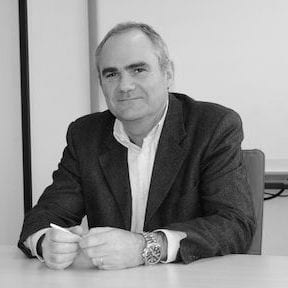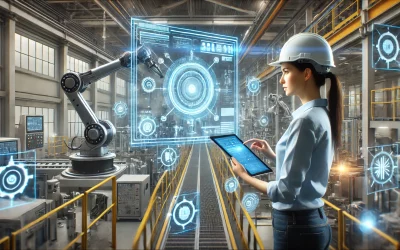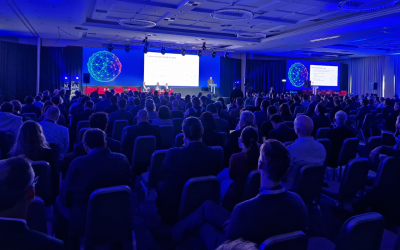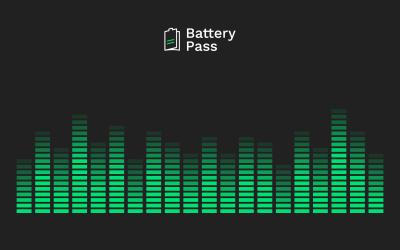WISDOM ACROSS THE BOARD // INTERVIEW #5
As we have already established in this series of interviews, projects don’t simply progress on their own. On top of having committed management bodies and an outstanding Board of Directors to help the teams stay on the right track, often organizations also have Mission Support Committees (MSCs). In a broader sense, they offer an additional innovative perspective, a guiding coalition to set innovation priorities, and speed up projects. Not only do Mission Support Committees members’ expertise span across many fields, but they also act as ears from the industry and hence, are up-to-date with the latest developments in the fast-changing digital environment.
A driving-force here at FIWARE Foundation, our MSCs are made up of entrepreneurs, academics, and technologists, all experts within their respective domains. The members of our MSCs collaborate to prioritize and oversee (for instance, by identifying and monitoring risks, guaranteeing the quality of the project, and keeping an eye on the project’s progress and timelines) the many initiatives run by the Foundation as well as those of which FIWARE is part of a consortium. Above all, our committees ensure that such initiatives are well aligned with the Foundation’s core culture and growth strategy in order to drive the organization into successful pathways.
 To further discuss how our MSCs work and most importantly, their key role in ensuring that the Foundation is taking the right approach into the smarter future, we decided to expand the ‘Wisdom Across the Board’ series to cover the outstanding work carried out by our MSCs in Smart Cities, Smart Energy, Smart Industry, Smart AgriFood, and the FIWARE iHubs. We are kicking off our series with Professor Antonello Monti, the Chairman of the FIWARE Smart Energy Mission Support Committee and Institute Director at RWTH Aachen University.
To further discuss how our MSCs work and most importantly, their key role in ensuring that the Foundation is taking the right approach into the smarter future, we decided to expand the ‘Wisdom Across the Board’ series to cover the outstanding work carried out by our MSCs in Smart Cities, Smart Energy, Smart Industry, Smart AgriFood, and the FIWARE iHubs. We are kicking off our series with Professor Antonello Monti, the Chairman of the FIWARE Smart Energy Mission Support Committee and Institute Director at RWTH Aachen University.
The interview has been edited for length and clarity.
FIWARE Foundation: Please tell us a little bit about your professional career to date and something personal (if you find it suitable, of course) such as hobbies, favorite trips, movies, or culinary dishes.
Prof. Antonello Monti: I studied in Italy where I also started my career in the Industry field working on the automation of large electrical drives. Later, I moved back on to academia. First in my native Italy, then in the USA for about eight years and now in Germany at the RWTH Aachen, where I started the Institute for Automation of Complex Power Systems about 11 years ago. Since last year, I am also involved in a RWTH-Fraunhofer cooperation for the creation of a new research center in Aachen for Digital Energy. On a personal note, I love music, mostly rock, and progressive music. I play guitar whenever I can but lately, it has not been as much as I would have liked it to be.
FIWARE Foundation: Why did you decide to be on the Smart Energy Mission Support Committee?
Prof. Antonello Monti: I have been involved in FIWARE from day one and I’ve followed all the developments in the Energy domain. I am a strong believer in FIWARE’s mission. Creating the right link between energy and Smart Cities is surely something that is at the center of my research activity and I like to play a key role in making the vision of a digital energy world a reality.
FIWARE Foundation: What experiences do you bring from your current roles and your career to date that would be valuable to the Foundation?
Prof. Antonello Monti: As I’ve mentioned before, I have been with FIWARE from day one so I think that an extensive know-how about the FIWARE technology can be a valuable asset to the Foundation. Furthermore, I am involved in a long list of Horizon 2020-related projects within the Energy sector, so that means I have a pretty broad view of the overall situation in Europe concerning Energy and digitalization. Also, I have quite a unique background that combines power engineering with a sweet spot for anything that is IT-related: this started when I was a student and I defined the list of my exams to obtain my degree. The university back then was not happy with my proposed list because I had a mix of power engineering and information technology, which was not standard at all at the time. Nonetheless, I won my battle and I got my program accepted. Today, thirty years later, I am still happy about it.
FIWARE Foundation: Being the chair of a Mission Support Committee presents trials of many kinds because it requires being attuned to people (including those who are at various levels of the Foundation hierarchy) and handling a large variety of tasks on top of your work at RWTH Aachen University. What would you say are the main challenges and opportunities when doing Mission Support Committee work at the Foundation?
Prof. Antonello Monti: For me, the cooperation within the Foundation has been a great experience. I am really happy to be involved with such nice people. Time is definitely a challenge but this is part of the deal and I do not complain. I would also like to mention that thanks to people such as Gianluca Dianese and Massimo Bertoncini, who are both fellow members of the Energy Mission Support Committee, I can run things in quite a smooth manner.
FIWARE Foundation: From your perspective, what are the biggest strengths and challenges for the Energy sector in the upcoming years?
Prof. Antonello Monti: This is a time of change and this means huge opportunities and also the possibility for completely new business models and Open Source technologies to flourish. We are working towards a fully sustainable Energy sector. It is a long and difficult path but it can also be a very exciting path: there are a lot of ideas and new scenarios that are emerging and it is time to capture such creativity.
For example, concepts such as sector coupling are becoming a clear need: the electricity infrastructure needs to interact with other infrastructures such as thermal grids or transportation, for instance. In essence, this means challenging the very same data silos that FIWARE is trying to address. On the other hand, however, this is a sector that is not very used to big changes and, as a result, it is rather conservative. Bringing this spirit of innovation to such a traditional environment can surely be a challenge and this is what the Smart Energy Committee has been striving to overthrow. It is worth mentioning that this conservative approach derives from the realism that yet runs through such critical infrastructure and that includes cybersecurity, for instance, which presents a real concern for the sector. Ensuring secure energy systems that provide essential services to society is crucial but protecting the data in such energy systems and the privacy of citizens play an equally important role and cannot be underestimated.
FIWARE Foundation: Finally, where do you see the Foundation three years from now and what would you do to enhance the strengths and overcome the latter?
Prof. Antonello Monti: I am impressed by the progress the Foundation has made since its creation. Back then, I could not have imagined that it could be successful in such a short time and I must say that Ulrich Ahle (CEO, FIWARE Foundation) is really the right guy in the right place. So, if I have to look into the future, I can only be optimistic. My challenge is to bring the Energy sector to understand what FIWARE means for the industry and to complete the integration of energy in Smart Cities. I consider this integration a key step in the digitalization of the Energy sector and this is, to me, a prerequisite for a clean energy future.
Stay tuned as we will catch up next with Arjen Hof, a member of FIWARE Foundation Smart Cities Mission Support Committee and Director, Civity b.v..



